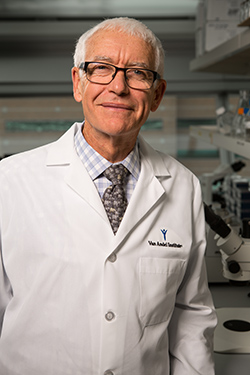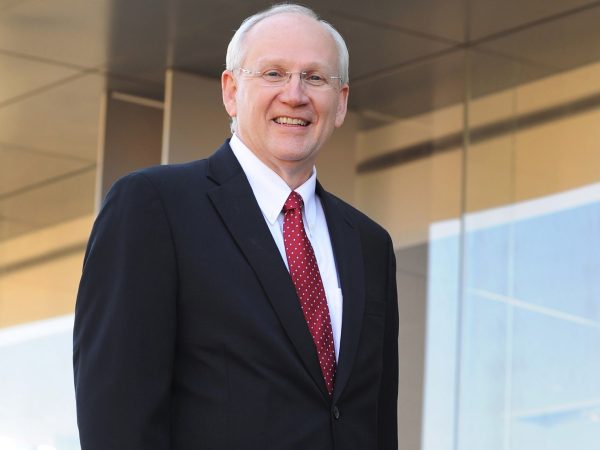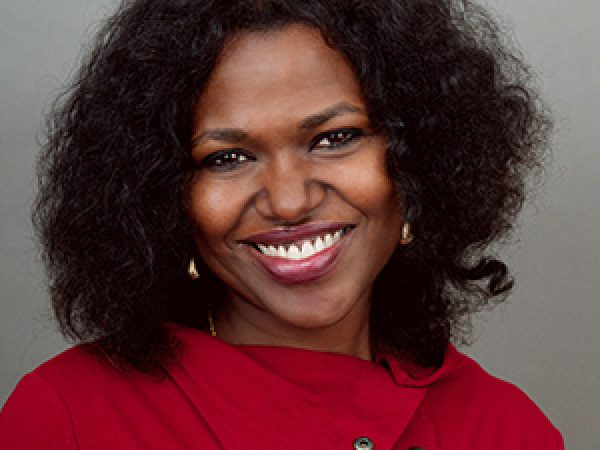Harnessing Epigenetics and Collaboration to Positively Impact Patients
Guest Post by Peter A. Jones, PhD, DSc
Research Director and Chief Scientific Officer
Van Andel Research Institute
Van Andel Research Institute (VARI) and Stand Up to Cancer (SU2C) recently announced the formation of the VARI-SU2C Epigenetics Dream Team, a multi-institutional collaboration to improve the health and enhance the lives of current and future generations of cancer patients through epigenetic research—the study of how the packaging and modification of DNA influences which genes are used or kept silent in a particular cell.
We took a moment to celebrate the new team, and then looked forward to the exciting work we hope will change the standard of care for cancer. Epigenetic changes play an especially important role in cancer development and progression. For example, a change that silences a gene responsible for preventing excessive cell growth can lead to uncontrolled cell proliferation and tumor development. If we can turn that gene back “on,” great potential exists to halt or slow tumor growth.
Some epigenetic treatments already exist and have made significant impacts in some cancer patients’ lives. Epigenetic therapies also show early signs of being able to sensitize cancers to existing chemotherapies, making these treatments more effective. However, so much more is possible. Through VARI’s collaboration with SU2C, some of the most respected medical and research institutions in the United States and abroad will contribute to high-impact clinical trials driven by basic epigenetics research.
SU2C has a unique and effective model—scientific leaders are brought together as Dream Teams to collaborate, rather than to compete. Our international team is headquartered at VARI in Grand Rapids, Michigan, and includes members from Johns Hopkins University, Temple University/Fox Chase Cancer Center, Memorial Sloan Kettering Cancer Center, University of Southern California, and University of Copenhagen. We are held accountable for our work by SU2C and the American Association for Cancer Research (AACR), which reviews our scientific projects. The team also will build on the work of the original SU2C Epigenetics Dream Team launched in 2009 and will continue to be led by Stephen Baylin, MD, the Virginia and D.K. Ludwig Professor for Cancer Research and director of the Division of Cancer Biology at the Johns Hopkins Kimmel Cancer Center, and me. I’m honored to be part of such an outstanding group of scientists and clinicians who have one goal in mind—to quickly translate the discoveries made in the lab to effective patient therapies.
In October, VARI-SU2C Epigenetics Dream Team members and representatives from leading pharmaceutical companies met at VARI to present and discuss clinical trial proposals. The conversations were lively, fruitful, and truly reflective of the team’s excitement. We’re deciding which projects to pursue and will announce the ones we’ll tackle soon.
The simple truth is we can’t fight cancer the way we’ve done it before. Changing the standard of cancer care requires this much-needed paradigm shift to the more collaborative approach that allows for better data and resource sharing. Our mission to positively impact those who need it most—fathers and mothers, children, neighbors, and friends—also is an urgent one. People with cancer don’t have a decade to wait for a new treatment. It is our hope that the VARI-SU2C Epigenetics Dream Team will provide a needed springboard to bring promising new epigenetic treatments to patients quickly, transforming care and lives.
To learn more about VARI, please visit www.vai.org. To learn more about Stand Up to Cancer, please visit www.standup2cancer.org.
Editor’s note: The AACR is the Scientific Partner of Stand Up To Cancer. Learn more.
Peter A. Jones, PhD, DSc, was born in South Africa, raised and attended college in Rhodesia (now Zimbabwe), and received his doctorate from the University of London. He joined the University of Southern California in 1977, attaining the rank of professor in 1985 and distinguished professor in 1999. He was director of the USC Norris Comprehensive Cancer Center between 1993 and 2011. His laboratory discovered the effects of 5-azacytidine on DNA methylation and linked this process to the activation of silenced genes. He is known for his studies on the molecular biology of cancer and of basic mechanisms of DNA methylation and its role in cancer and differentiation. He is a past president of the American Association for Cancer Research and was elected as a fellow of the AACR Academy in 2013. He has published more than 300 scientific papers and received several honors, including the Outstanding Investigator Grant from the National Cancer Institute. He shared with Stephen Baylin the Kirk A. Landon Award for Basic Cancer Research from the AACR in 2009 and the Medal of Honor from the American Cancer Society in 2011.




